#Brentano's
Photo


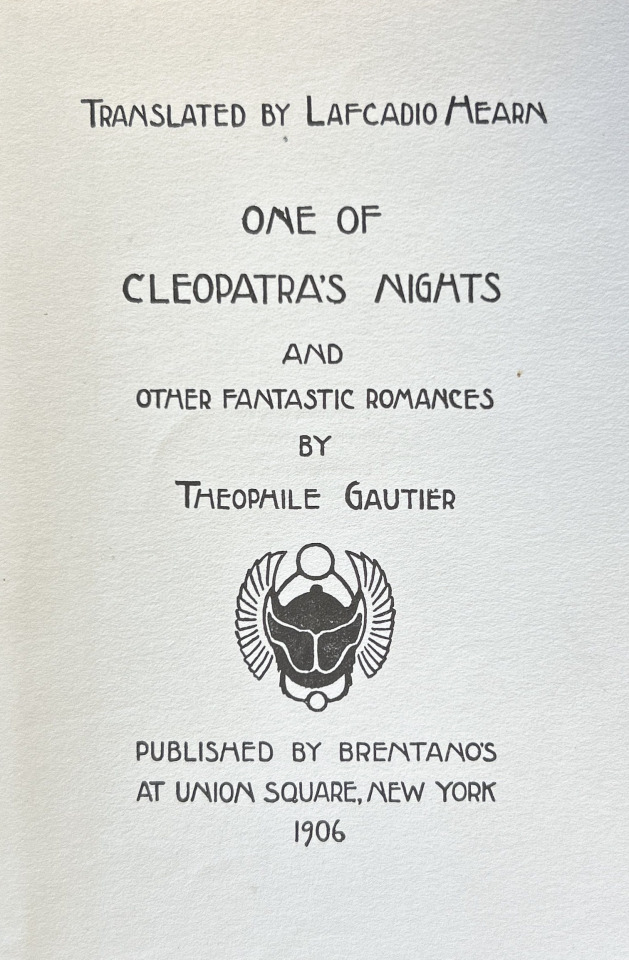

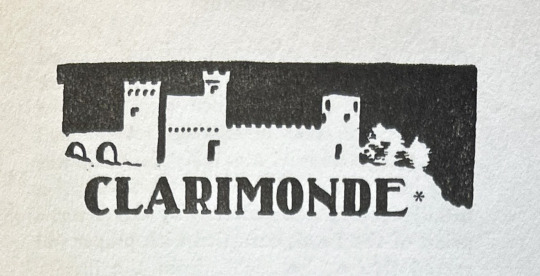

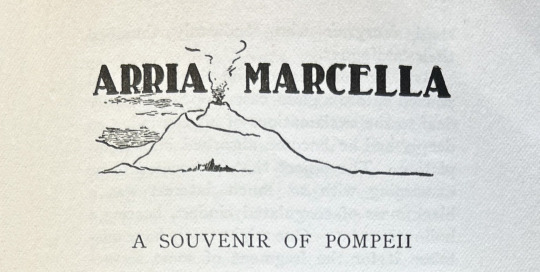

Publishers’ Binding Thursday
The best way I’ve found to find the lovely publishers’ bindings in our collection is to simply go looking for them in the stacks. Most are not identified as having publishers’ bindings in their records, and many have designs that are uncredited; so while some publishers’ binding designers like Margaret Armstrong are well-known and credited for their work, many remain unknown and unremembered. But their work is not unappreciated!
This floral publishers’ binding for One of Cleopatra’s Nights is one of those designed by an unnamed designer. However, we love the flowing design with golden irises on the left side of the cover, perhaps representing the Nile? The book also features little illustrative headpieces at the beginning of each story. This edition was published in 1906 by Brentano’s, a bookstore chain and briefly a publishing house based in New York City.
The text is a group of short stories written by Théophile Gautier (1811-1872), a French author who wrote plays, stories, poems, and was also a journalist and art, theater, literature, and ballet critic. Gautier was well-respected as a critic but also as an author in his own right, with fans like Balzac, Baudelaire, Flaubert, Pound, Eliot, Proust and Wilde. Gautier was also well-known for his fashion, and famously wore a scarlet waistcoat. The book’s translator, Lafcadio Hearn, also had a very interesting life.
View more Publishers’ Binding Thursday posts.
-- Alice, Special Collections Department Manager
#Publishers' Binding Thursday#Theophile Gautier#One of Cleopatra's Nights#Brentano's#publishers' bindings#irises#flowers#floral patterns#Lafcadio Hearn
96 notes
·
View notes
Text

“He stopped, looked up and stared at me fixedly, tears fell from my eyes, I trembled and could not hold myself together.”
— Bettina Brentano’s reaction to seeing Napoleon in August of 1807
Source: Kathleen M. Hallihan, Following Bonaparte, Images of Napoleon in the Works of Bettina von Arnim
#Napoleon#napoleon bonaparte#Bettina Brentano#Bettina von Arnim#quotes about Napoleon#napoleonic era#napoleonic#first french empire#french empire#quotes#description of Napoleon#history
34 notes
·
View notes
Text
Schlegel: Fighting with my brother about which fruit would win if they were sentient and could fight.
Kleist: Obviously pineapple.
Achim: Except coconut would kick its ass...
Heine: Uh...have you seen a durian before?
Schiller: Dragonfruit is the obvious right answer.
Goethe: That's ridiculous. Pomegranate is known as "grenade" in many languages, e.g. "grenade" in French, "grenade apple" in Swedish...
Bettine: Grapefruit, duh.
Fichte: Obviously the kiwi, as it's the only fruit that can fly. I mean, how would you even fight back?
Humboldt: But kiwis don't fly. Neither the birds nor the fruit.
Tieck: Tomato obviously. It would be hanging out with the vegetables and no one would notice until the other fruits kill each other off, then it swoops in and claims victory.
Brentano: Pumpkins are pretty tough.
Eichendorff: Jackfruit. Have you ever seen those fuckers?
Kleist: CAN'T YOU SEE FRUIT VS. FRUIT BATTLES ARE TEARING US ALL APART?!?!?!?!?!
*everyone arguing*
Novalis: Grapes.
*everyone stops and looks in Novalis's direction*
Novalis: What? They're like a...little...purple...gang.
#source: reddit#and also a matt rose video on youtube#august wilhelm schlegel#heinrich von kleist#achim von arnim#heinrich heine#friedrich von schiller#johann wolfgang von goethe#bettine brentano#johann gottlieb fichte#alexander von humboldt#ludwig tieck#clemens brentano#joseph von eichendorff#friedrich von hardenberg#incorrect german romanticism quotes
9 notes
·
View notes
Text
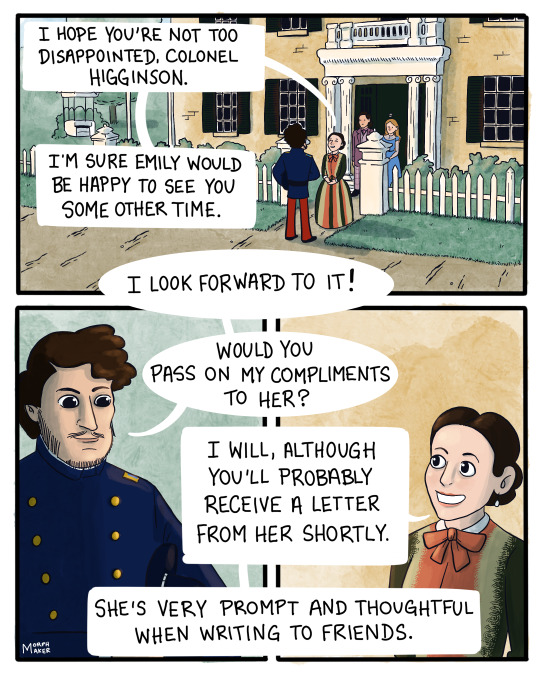



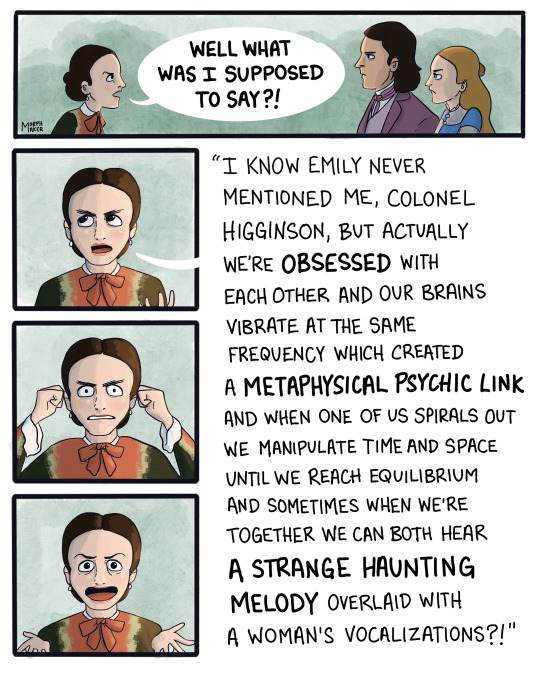


forget about "top or bottom" discourse, you're either a bettine or a günderode
#dickinson#emily dickinson#sue gilbert#lavinia dickinson#austin dickinson#thomas wentworth higginson#bettinavonarnim#bettina von arnim#karoline von günderode#goethe's correspondence with a child#bettina brentano#karoline von günderrode#susan dickinson#sue dickinson#morphmaker arts
63 notes
·
View notes
Text
Habe letztens Goethe‘s Briefwechsel mit Bettina Brentano gefunden. Bzw. jemand hat es auf Discord dramatisch vorgetragen

Betti girlbosses ein bisschen zu nah an der Sonne, ich verstehs, aber Mausi, da hätte ich nochmal drübergelesem. Der Fakt dass sie auch erst mit seiner Mutter geschrieben hat… UND DANN SEINE ANTWORT

Wortwörtlich diese Reaktion

7 notes
·
View notes
Text
“I can’t write poetry like you, Günderrode, but I can talk with nature... And when I come back... we put our beds side by side and chat away together all night... great profound speculations which make the old world creak on its rusty hinges.”
— Bettina von Arnim (1785-1859) in a letter to Karoline von Günderrode [A virtuoso muse, Jan Swafford]
#Bettina von Arnim#Bettina Brentano#sapphic#literature#romanticism#letters#19th century literature#1800s literature#german literature#wlw#german romanticism
3 notes
·
View notes
Text
Works about a young person so attractive that it brings them misery, shrinks their world more and more, and eventually dooms them:
Zu Bacharach am Rheine by Clemens Brentano
I'm Too Sexy by Right Said Fred
#follow raginrayguns.tumblr.com for more two element bullet lists#Lorelei#Lore Lay#Zu Bacharach am Rheine#Clemens Brentano#I'm Too Sexy#Right Said Fred
2 notes
·
View notes
Text
Enactive Cognition in Place (Miguel A. Sepulveda-Pedro, 2023)
“In the philosophical jargon, intentionality concerns the aboutness of experiences: my perception, for instance, is about the maple tree in the garden of my neighbor, my memory is of my friend who has recently died, my imagining is of the Minotaur of Crete, and my thoughts are about who will win the presidential election in the United States.
In these examples, we find that the objects my mental acts refer to have different modes of presentation.
In some cases, the objects are currently present (e.g., the tree I see through the window).
In other cases, they are absent (e.g., my dead friend), while in others, they are simply unreal (e.g., the Minotaur).
An important lesson follows from this: In Brentano’s eyes, intentionality does not imply the intended object’s presence (or absence). (…)
On the one hand, for non-present and unreal objects, the references of our mental acts cannot be physical objects that are currently present.
So far, this is clear. On the other hand, although objects of perception may be physically present, their presence is only partial.
The maple tree I see through the window, for instance, shows me only one of its visual profiles (e.g., the upper part of the tree), yet my perceptual experience is not about this piece of the tree but the whole tree.
Therefore, it seems that my experiences never refer directly to physical objects, not even in perception; instead, they seem to be mediated by something standing between the physical reality of the world and subjective states of the mind.
This is the birthplace of Brentano’s representationalism. (…)
The contents of my experiences are, according to these theories, copies of physical reality; they are mental representations.
That is clear, for representationalists, in the cases of imagination and memory, where the objects of my experience are not “in the flesh”—any experience of these objects must, they would argue, be representations.
However, they further argue that the same is true in cases of perception, where my vision of the maple tree is not really about the physical tree but a mental representation of the tree.
For this reason, even if the physical nature of my senses gives me only one profile of the object, my experience is about the whole object.”
2 notes
·
View notes
Text

[Brentano was the sort of teacher who could work such miracles.]
#s27e07 a passport of flavor#guy fieri#guyfieri#diners drive-ins and dives#brentano#sort#teacher#miracles
2 notes
·
View notes
Text
Occhi

Potessi volare al di sopra del tempo
e potessi librarmi sopra te...
piegherei le mie ali e mi abbandonerei tutto
alla silenziosa onnipresenza dei tuoi occhi.
Bettina Brentano von Armin
0 notes
Text

SERENATA NOCTURNA
Oye, la flauta se queja,
rumoran frescos veneros.
Dorados halos descienden:
¡silencio, calla! ¡escuchemos!
Ruego gentil, suave anhelo,
¡cómo le habla al corazón!
En la noche que me encierra
guiña la luz de este son.
*
ABENDSTÄNDCHEN
Hör‘, es klagt die Flöte wieder,
Und die kühlen Brunnen rauschen.
Golden weh‘n die Töne nieder,
Stille, stille, laß uns lauschen!
Holdes Bitten, mild Verlangen,
Wie es süß zum Herzen spricht!
Durch die Nacht, die mich umfangen,
Blickt zu mir der Töne Licht.
Clemens Brentano
di-versión©ochoislas
#Clemens Brentano#literatura alemana#poesía romántica#nocturno#sonidos#sinestesia#coloquio#emoción#di-versiones©ochoislas
0 notes
Text
(In)equilibrio - forme impercettibili - Entity N° 16064
Scale di grigio su pixel

View On WordPress
0 notes
Text
Concept: Goethe, Schiller, the Schlegels, Kleist, Humboldt, Novalis, Achim, Bettine, Clemens Brentano, and Heine singing "I'm Gonna Be (500 Miles)" by the proclaimers.
#johann wolfgang von goethe#friedrich von schiller#the schlegels#heinrich von kleist#alexander von humboldt#friedrich von hardenberg#achim von arnim#bettine brentano#clemens brentano#heinrich heine#german romanticism#german literature#novalis speaks
2 notes
·
View notes
Link
German writer Clemens Brentano was a key figure of Romanticism, known for his poetry and novels, including "Godwi" and "Geschichten aus dem Leben hervorragender Damen".
Link: Clemens Brentano
0 notes
Text
¿Consciencia sin sujeto?
Una perspectiva en el desarrollo de máquinas conscientes (o con mente, si equiparamos ambos conceptos) es construir artefactos con capacidad de representarse a sí mismos. A priori, podría parecer una perspectiva errónea ya que cuando somos conscientes de algo no necesariamente nos representamos a nosotros mismos. Si yo soy consciente del color rojo de una amapola, la amapola no forma parte de mí…

View On WordPress
0 notes
